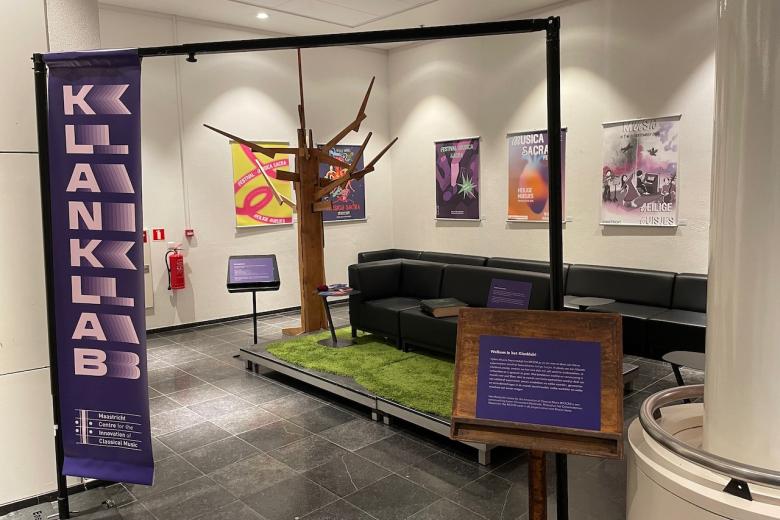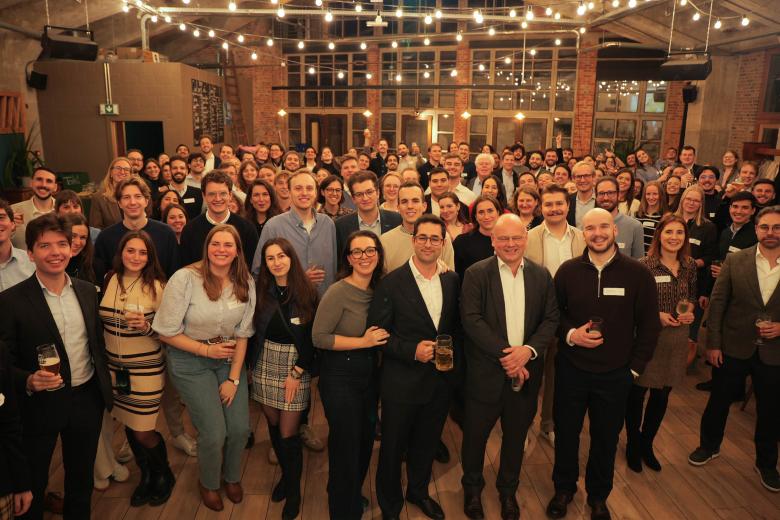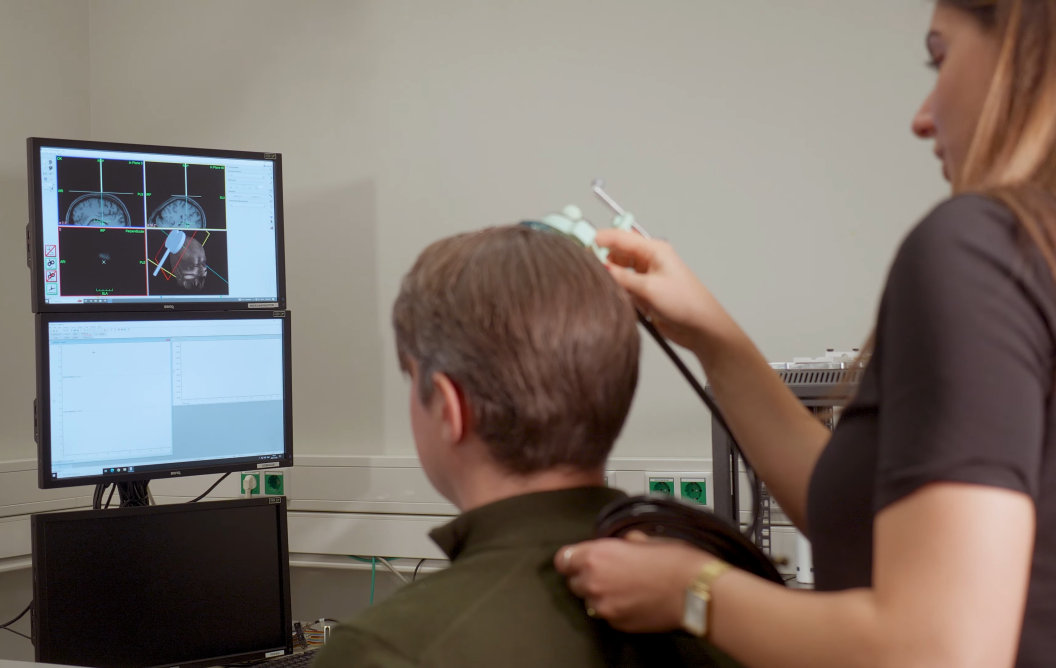Tailored brain stimulation: neuroscientists in Maastricht and Nijmegen join forces
Take all the knowledge and technology about the brain and brain stimulation from Maastricht University and Radboud University, add a good dose of AI expertise and what do you get? A platform that is brimming with the ambition to develop new applications for non-invasive, personalised brain stimulation. From long-term stress to Parkinson's disease, and from neurofeedback to focused ultrasound: these scientists want to significantly expand and refine the possibilities for adjusting the brain.
Neuroscientists Rainer Goebel (Faculty of Psychology and Neuroscience, Maastricht University) and Edward de Haan (Donders Institute for Brain, Cognition and Behaviour, Radboud University) are the enthusiastic leaders of a large group of scientists who will be collaborating on the project Advanced Neural Control to Restore Brain Function. This project was recently awarded a grant of 1.1 million euros for the first three years from the partnership between the two universities.
The most powerful scanners in the Netherlands
The fact that both universities will be working together more intensively from 2022 and that they have an incentive fund for this made it a little easier to ‘think big’. After all, the neuroscientists in Nijmegen and Maastricht were already collaborating and exchanging knowledge. De Haan: ‘Maastricht has a 9.4 Tesla MRI scanner and Nijmegen is getting a 14 Tesla MRI scanner. This is a facility for the whole of the Netherlands that has been obtained in part via a NWO Roadmap grant in collaboration with all 7 Tesla centers in the Netherlands. To learn about the possibilities of such a device, it is best to ask Maastricht, where they have experience with the most powerful scanner in the Netherlands at the moment.
Non-invasive brain stimulation
It is no coincidence that Maastricht and Nijmegen are the locations for the strongest MRI scanners, because advanced imaging, high field imaging, is something both universities have specialised in for years. And they can complement each other in this. For example, Radboud University has the Focused Ultrasound Initiative, and both places – together with Radboudumc and Maastricht UMC+ – are working with new techniques such as transcranial magnetic or electrical stimulation and temporal interference. All these techniques influence the brain in a non-invasive way, i.e. from the outside of the skull.
Non-invasive brain stimulation is a spearhead of research in Maastricht. It can be used for many things, Goebel explains: ‘In the areas of movement, language – think of rehabilitation after a stroke – and vision. But there are also applications for psychiatric and neurological disorders. If we combine all our knowledge and techniques, we can help patients even better.’
And that is necessary, Goebel believes. He cites a case told by his colleague Yasin Temel, an expert on deep brain stimulation who collaborates already with Nijmegen. In this case a Parkinson's patient got rid of his tremor through deep brain stimulation (a method that is invasive). But he also remained depressed, something that is more common with this disease. ‘If a patient can brush his teeth again but is still desperately unhappy, then we cannot say that we have helped that patient properly, can we? I am convinced that it can be done better when combining invasive and non-invasive methods.’
The next step: customisation
The ‘next step’ brain stimulation that the scientists have in mind does require a significant hurdle to be overcome: more customisation is needed. De Haan: ‘We want to move towards methods that are adaptive and self-learning. Methods that take into account all the factors that are important for this individual patient and can respond to them directly. It is a challenging task to understand all relevant factors and integrate them into systems that train themselves and thus become increasingly intelligent.
This is where AI comes in, represented in this project by Marcel van Gerven and Mario Senden, AI experts at Maastricht University and the Donders Institute. Goebel: ‘We want to take into account factors that are not always included because they seem too complex. Did someone not sleep well, are they having a bad day, is there trouble at home? We really need AI for that, to learn from countless values and measurements and to respond to them with the right response.’
Platform as a starting point
The ambitions are great, and the subsidy from the cooperation fund will give the scientists a good start. De Haan: ‘We are starting a joint platform that we can build on for a long time to come. The possibilities are great. From a strong base in the south-east of the Netherlands, we also want to enter into new collaborations with regional and national partners.
The starting point is to gain more fundamental knowledge about the brain and technology so that we can ‘play’ more with what we have and know, according to De Haan and Goebel. The next step is a more holistic approach to individual patients in their specific context. In addition to research, new educational initiatives form an important part of the project. Students, PhD candidates, young scientists and technicians are trained in new, transdisciplinary ways of thinking and working.
De Haan: ‘If we can achieve better results than before by combining knowledge and methods, then we will really achieve something for society. We have a lot of work to do, but we have the knowledge, the people and the technology in Nijmegen and Maastricht. And now with the resources too, we can make things happen.
"If we can achieve better results than before by combining knowledge and methods, then we will really achieve something for society."
Edward de HaanAlso read
-
More than a student job: five alumni about their unique role in groundbreaking vascular research
What is it like to take part in cutting-edge vascular research as a student, standing in the operating room, directly responsible for handling patient material? Five alumni of the Maastricht MAPEX student team share what they learned, the challenges they faced, and how this experience shaped their...

-
SoundLab
On September 19, 2025, the MCICM introduced a new form of interactive audience participation, the Sound Lab.

-
MA European Public Affairs Turns 25 – Alumni Celebrate in Brussels
Maastricht University recently celebrated the 25th anniversary of its European Public Affairs Master’s programme (MA EPA) with a large alumni gathering in Brussels. The event, held on 30 October at Au Bassin, welcomed more than 120 alumni from across 25 graduating cohorts — from the first class in...

